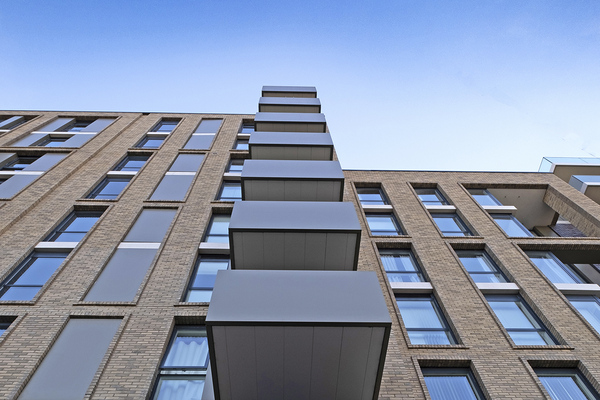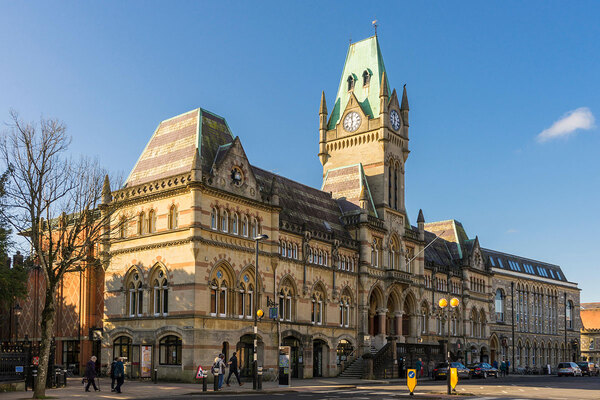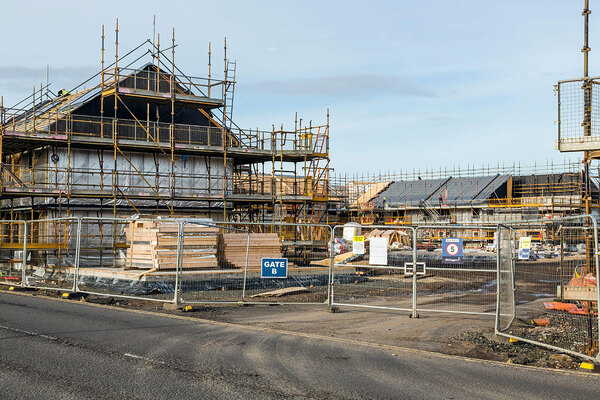Michael Gove interview: leasehold bill was more important to pass than renters reform
Housing secretary Michael Gove tells James Riding why the Leasehold and Freehold Reform Bill was prioritised before the election and recommits to his ambition of 30,000 social rent homes

Housing secretary Michael Gove, who is standing down as an MP next month, defends shelving the Renters (Reform) Bill ahead of the general election. He states that his leasehold legislation was “more complex” and would have taken “far longer” to pass if it was sent “back to square one”.
The Leasehold and Freehold Reform Act was rushed onto the statute books at the end of May in the ‘wash-up’ period, whereby bills are quickly progressed after a general election has been called.
But the long-delayed Renters (Reform) Bill did not make the cut, leaving the government’s 2019 promise to scrap Section 21 no-fault evictions unmet.
Mr Gove says: “We had a two-day wash-up. This was arranged between the parties, so I don’t want to apportion blame. And, to my mind, it was more important, given the choice – it was a bit of a Sophie’s Choice – to get the leasehold bill through.
“But the renters bill is there. It’s been through its Commons stages… So if re-elected, then we would reintroduce the bill, and we were clear in the manifesto that we would get rid of Section 21 once and for all.”
Asked why it was more important to pass the leasehold legislation, Mr Gove states: “Because it was simply a more complex piece of legislation.
“It took longer to draft, had more clauses and also it was a decisive change for good that we could bring about.
“If we hadn’t, going back to square one on that bill would have meant that the changes that we would have needed would have taken far longer.”
Leasehold and housebuilding
The Leasehold and Freehold Reform Act 2024 bans the sale of leasehold houses (but not flats), increases lease extension terms and makes freeholders issue service charge bills in a clearer format. However, a plan to cap ground rents at £250 a year was scrapped.
Speaking to Inside Housing during a visit to an L&Q housing scheme in west London on the general election campaign trail, Mr Gove recommits to his ambition to build 30,000 social rent homes a year.
Asked why there was no specific social housebuilding commitment in the Conservative Party’s election manifesto, Mr Gove says: “There’s a lot in the manifesto, and the overall ambition of 1.6 million new homes in the new parliament obviously includes the provision of affordable homes and the provision of social homes as well.
“We’ve created that target overall, but what we haven’t done in the manifesto… is to have sub-targets at this stage, either for social homes or year by year, because we want to build up over time.
“But I’ve said in the past, I think that we should certainly be building at least 30,000 new social things every year. And even though there’s not a formal target in the manifesto, it’s a lodestar by which we should be guided.”
The Conservative manifesto contains a promise to provide capital gains tax relief to private landlords which sell a home to their existing tenants. Mr Gove says that if the government is re-elected, he could advise his successor to look at extending the policy to councils as well.
“Everything in the manifesto is, to use the phrase of the moment, fully costed and fully funded,” he explains. “But this was an idea that was originally developed by business secretary Kemi Badenoch when she was in the Department [for Levelling Up, Housing and Communities], and so reached fruition as a result of that.”
Plans for the future
Mr Gove also says that shared ownership was fit for purpose as a tenure and “a very effective stepping stone” to homeownership. However, he adds: “I’m always happy if injustices are brought to light to think about either regulation or changes to rules.”
In March, MPs demanded “urgent reform” to the tenure after an inquiry found that uncapped service charges and unfair maintenance costs were making it unaffordable.
The housing secretary is standing down as MP for Surrey Heath at the general election. On what he will do next, Mr Gove says: “I don’t yet know. The time of the election came as a surprise to me and it compelled me to think about the future.
“I hope that I’ll be able to still make a contribution to policymaking generally, including when it comes to housing and levelling up. But I haven’t settled on specifically what I’m going to do.”
Asked if a return to journalism could be on the cards, he says: “I was a columnist for Inside Housing many years ago, so I’d be more than happy to negotiate writing again for a very competitive fee.”
Sign up for our daily newsletter
Already have an account? Click here to manage your newsletters











